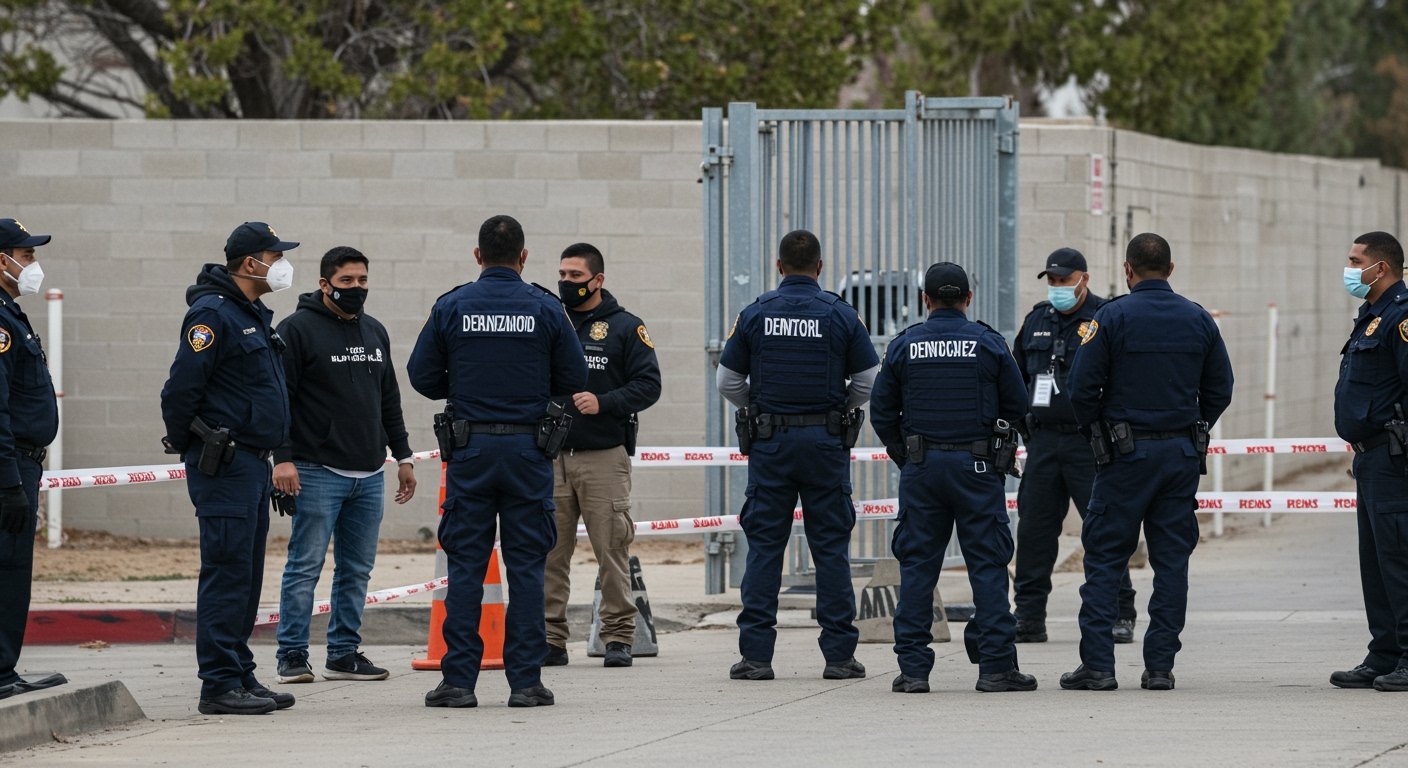ADELANTO, California – A dramatic increase in the number of individuals held at the Adelanto ICE Processing Center, located approximately 85 miles northeast of Los Angeles, is rapidly intensifying scrutiny over the conditions within the facility. Critics and advocacy groups are voicing alarm, describing the situation as unsanitary, overcrowded, and inhumane.
The facility, a 1,940-bed detention center operated under contract with Immigration and Customs Enforcement (ICE), has seen its detainee population swell significantly in recent weeks. According to data compiled by the American Civil Liberties Union of Southern California (ACLU of Southern California), the number of people detained at Adelanto skyrocketed from around 300 near the end of April to over 1,200 as of Wednesday, June 18, 2025.
Understanding the Recent Surge
This sharp escalation in the detainee population is attributed to a combination of factors. Federal immigration agents have conducted a series of mass raids across Southern California, leading to a large volume of new intakes. Simultaneously, the facility’s operational status has shifted due to a series of federal court orders issued this year, with the most recent order arriving in early June. These judicial directives have paved the way for the Adelanto center to fully reopen to new detainees.
Prior to these recent developments, the facility had been operating at a reduced capacity since 2020. This was a consequence of a class-action lawsuit regarding COVID-19 risks within the detention setting. That lawsuit had previously led a federal judge to force the release of detainees considered vulnerable and to prohibit new intakes for a period, significantly lowering the population.
Allegations of Dire Conditions
The rapid influx of detainees is reportedly overwhelming the facility’s resources and capacity, leading to a deterioration of conditions. Advocacy groups, citing accounts from individuals held inside, report what they describe as dire conditions. Some detainees have conveyed their experiences directly to lawmakers.
Disturbing accounts include reports from detainees who claim they were held for as long as 10 days without clean clothes or towels. Other allegations highlight systemic issues, such as detainees being denied telephone access, limiting their ability to communicate with legal counsel, family members, or outside support networks. These reports paint a picture of conditions that critics argue fall short of basic standards for hygiene and human dignity.
Congressional Oversight and Advocacy Concerns
In response to the mounting concerns, political representatives have begun to engage. Congressmember Judy Chu reportedly conducted an inspection of the facility to observe the conditions firsthand and gather information on the situation.
The ACLU of Southern California has been at the forefront of raising alarms about the Adelanto center. Eva Bitrán, director of immigrant rights at the ACLU of Southern California, provided a notable perspective on the detainee population. Bitrán stated that, based on their observations and collected information, “almost everybody” held in the facility had no criminal record prior to their detention, suggesting that the vast majority of detainees are individuals held solely for civil immigration violations.
Advocates argue that detaining such individuals in potentially substandard and overcrowded conditions is unnecessary and harmful, especially given the lack of prior criminal history for many. The situation at Adelanto underscores ongoing debates in the United States regarding immigration enforcement practices, the use of private detention facilities, and the standards of care afforded to individuals in immigration custody.
The surge in detainees and the subsequent allegations of deteriorating conditions at the Adelanto ICE Processing Center are expected to maintain the facility as a focal point for human rights observers, legal advocates, and policymakers in the coming weeks.





